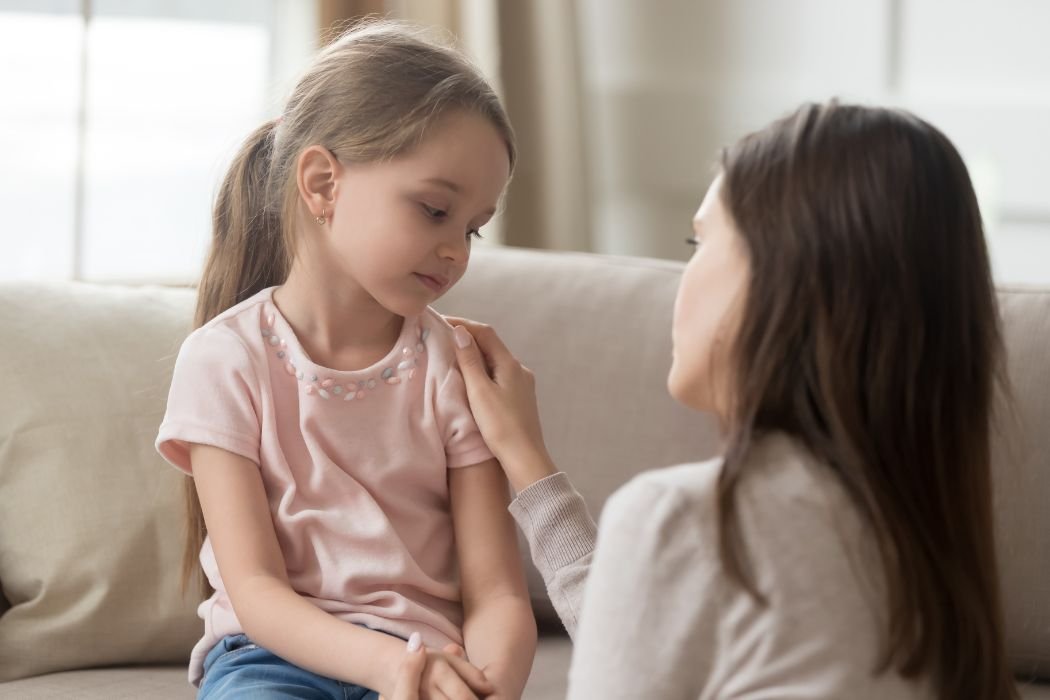How to Create a Calm and Supportive Home Environment for your Anxious Child
Anxiety is a natural part of growing up, but for some kids, it can be so intense that it affects their daily life. Parents and caregivers need to create a calm and supportive home environment for children who struggle with anxiety. This blog post provides tips and strategies for achieving this.
Before getting into the practical advice, it's important to understand what anxiety is and how it impacts children. Anxiety is a feeling of worry, nervousness, or unease about a future event or situation. It can take different forms, such as excessive worrying, separation anxiety, or social anxiety.
Anxiety can affect a child's behavior, sleep patterns, academic performance, and relationships with loved ones. Therefore, it's crucial to recognize the signs of anxiety and provide the necessary support and care.
HAVE Open communication WITH YOUR ANXIOUS CHILD
One of the most important things you can do to support anxious children is to have open communication with them. Encourage your child to talk about their feelings, worries, and fears. Let them know that it is normal to feel anxious and that you are there to help them.
When your child shares their worries, listen to them without judgment. Avoid minimizing their feelings or telling them not to worry. Instead, acknowledge their feelings and validate their experiences. This can help them feel heard and understood.
Establish routines FOR YOUR ANXIOUS CHILD
Establishing routines can provide a sense of predictability and stability for anxious children. Create a daily routine that includes time for schoolwork, playtime, meals, and rest. Stick to the routine as much as possible, but also be flexible when needed.
It is also helpful to establish bedtime routines to help your child relax and get a good night's sleep. This can include activities such as reading a book, taking a warm bath, or listening to calming music.
Create a safe space FOR YOUR ANXIOUS CHILD
Creating a safe space can help anxious children feel secure and calm. This can be a designated area in the home, such as a corner in their bedroom, where they can go to relax and unwind.
Provide comfort items in the safe space, such as a favorite stuffed animal, a cozy blanket, or a calming scent. Encourage your child to use the safe space whenever they feel overwhelmed or anxious.
Encourage relaxation techniques WHEN YOUR CHILD IS ANXIOUS
Teaching relaxation techniques can help anxious children manage their feelings of stress and anxiety. This can include deep breathing exercises, progressive muscle relaxation, or guided imagery.
Practice these techniques with your child and encourage them to use them whenever they feel anxious. Over time, these techniques can become a helpful coping mechanism for your child.
Model calm behavior FOR YOUR ANXIOUS CHILD
As a parent or caregiver, your behavior can have a significant impact on your child's anxiety levels. If you are anxious or stressed, your child may pick up on these feelings and become anxious themselves.
Model calm behavior by managing your own stress levels. Take breaks when needed, practice self-care, and prioritize your mental health. This can help create a calm and supportive environment for your child.
Seek professional help FROM A PLAY THERAPIST
If your child's anxiety is severe or persistent, it may be necessary to seek professional help. A mental health professional such as a Play Therapist can provide your child with the appropriate support that they need to help manage their anxiety. Play Therapy can help children understand their anxiety and teach your child strategies that they can utilize to decrease their symptoms. The Play Therapist can also teach the parent strategies to support their anxious child.
In conclusion, creating a calm and supportive home environment for anxious children requires understanding, communication, routine, and modeling calm behavior. By following these tips and seeking professional help from a Play Therapist when necessary, you can provide your child with the support and care they need to manage their anxiety and thrive.
Janine Kelly, MSW, LCSW, RPT, CATP, ADHD-CCSP, CCATP-CA is a Registered Play Therapist, Certified EMDR Therapist, and Perinatal Mental Health Therapist in Middlesex, NJ. Janine specializes in childhood anxiety, childhood OCD, childhood trauma, and supporting children who experience neurodivergence such as ADHD and Autism. She also specializes in pregnancy and postpartum mood disorders such as anxiety, panic disorder, OCD, depression, and Post-traumatic Stress Disorder (PTSD).
*This blog is not a substitute for therapy. To schedule an appointment, please click below.




